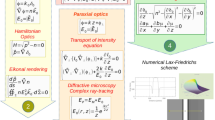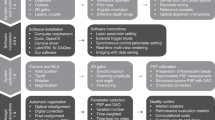Abstract
REFERRING to the interesting article on the merits of English versus Continental Microscope Stands in NATURE of December 21, 1911, I notice that whilst reasons are given on both sides for the distinctive peculiarities of the respective models, and a general suggestion is made as to how the present well-recognised types have come about, curiously enough, no reference has been made to what seems to me to be the real origin of the most important differences between the two types—I refer, of course, to the substage arrangements as a whole. Why is it that the English model provides for the exact centring, and frequently for fine adjustment focussing of the substage optical system, whilst the Continental model does not? Why is it that the Continental models, on the other hand, provide rackwork mechanism for moving the iris diaphragm of the condenser out of centre, with means for rotating this whole arrangement—a feature absent in the English model?
This is a preview of subscription content, access via your institution
Access options
Subscribe to this journal
Receive 51 print issues and online access
$199.00 per year
only $3.90 per issue
Buy this article
- Purchase on Springer Link
- Instant access to full article PDF
Prices may be subject to local taxes which are calculated during checkout
Similar content being viewed by others
Author information
Authors and Affiliations
Rights and permissions
About this article
Cite this article
RHEINBERG, J. English v. Continental Microscope Stands. Nature 88, 348–349 (1912). https://doi.org/10.1038/088348c0
Issue Date:
DOI: https://doi.org/10.1038/088348c0
Comments
By submitting a comment you agree to abide by our Terms and Community Guidelines. If you find something abusive or that does not comply with our terms or guidelines please flag it as inappropriate.



